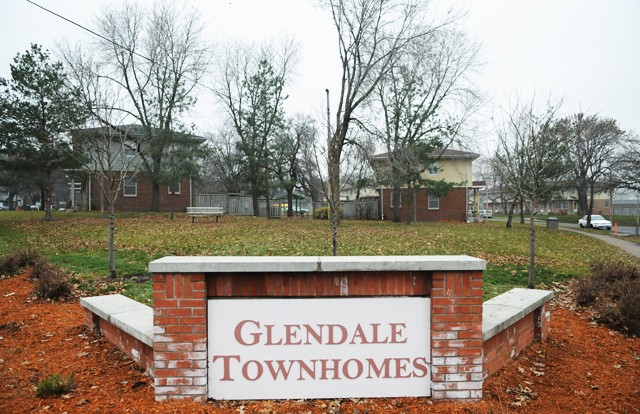A Prospect Park group is looking to address parking shortages in a broader effort to improve relationships between public housing residents and other underrepresented groups.
The Prospect Park Association established its Community Building Committee earlier this year to reach out to students and residents of the Glendale Townhomes. These efforts are a response to a citywide push for greater diversity in neighborhood groups. Most recently, the committee was involved in efforts to make parking more available for Glendale residents at a Thursday meeting.
Susan Larson-Fleming, a committee co-chair and PPA board member, said the group aims to help solve community problems that might have been previously overlooked.
“We’re hoping that we can facilitate and bring people together to work on other issues,” Larson-Fleming said.
The streets near Glendale are designated critical parking zones on weekdays between 8 a.m. and 6 p.m., limiting parking to residents who have purchased parking stickers.
But when critical parking hours are not in effect, University of Minnesota students and others living in nearby apartment complexes often fill Glendale’s street parking, said Dillon Fried, assistant parking systems manager at City of Minneapolis.
Residents attending the Thursday meeting said they supported extending critical parking hours. Malik Yusuf, assistant property manager at Glendale, said it is important for the city to understand the negative impact the parking shortage has on residents.
“By law it’s [non-Glendale residents’] right to park here unless as a community we say, ‘No,’” Yusuf said at the meeting. “It’s actually impacting our livelihood, it’s impacting our people with disabilities, it’s impacting our guests, it’s impacting us and we need to change something.”
The city is prepared to expand the hours of critical parking in Glendale, said Ward 2 City Council member Cam Gordon.
Helping organize conversations around parking in Glendale is an example of how the Community Building Committee can strengthen relationships throughout the neighborhood, said Jerry Stein, a committee co-chair.
PPA should reach out and strengthen relationships with traditionally underrepresented groups in order to encourage participation with the organization, Stein said.
“If we know about what is on their mind, we might be able to be helpful. Let’s do that and get to know what other people are thinking about and not worry so much for a while about who’s coming to our meetings,” Stein said. “First, let’s create real relationships with a lot of different parts of our community.”
The committee has also met with representatives from the Minnesota Student Association, Off-Campus Living and the University’s Office for Public Engagement. Current efforts include compiling a map of student apartments in Prospect Park with Off-Campus Living to better inform future engagement.
Larson-Fleming said the committee plans to continue meeting with and listening to the concerns of a variety of neighborhood residents.
“It’s very much one thing leading to another, and just taking the time to listen to people,” she said. “I mean, so much of what this is about is listening.”













